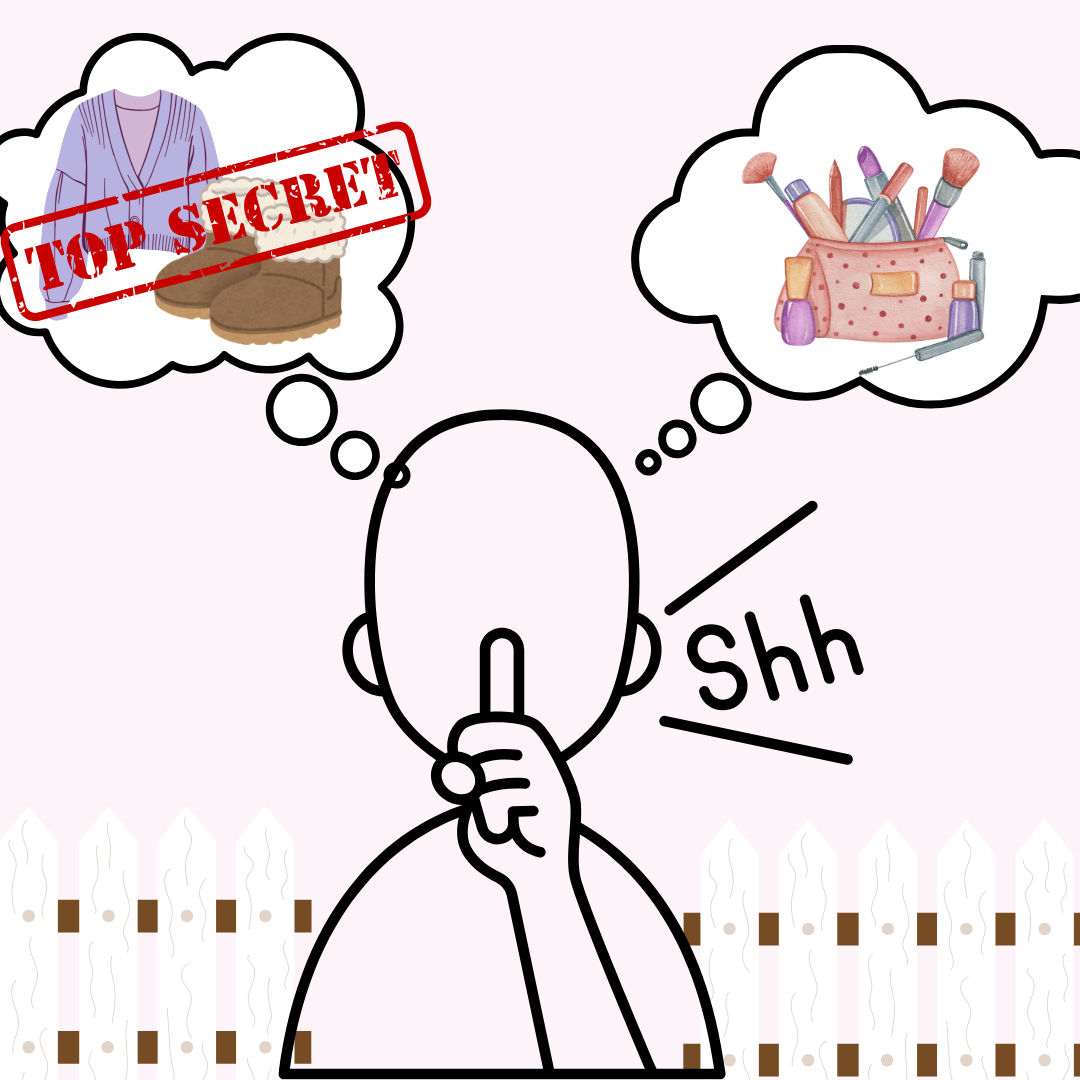Gatekeeping is the act of controlling and limiting general access to something. It started as a desire to protect culture and its teachings but has become a way to control access to particular goods. Individuals may feel that giving out information on their prized possessions, like clothing and favorite products, attacks their identity.
Many times influencers whose job is to share or promote products choose to keep to themselves. “I’ve seen gatekeeping from influences where they keep secret what products they use such as makeup or hair products. It can be really frustrating when you want to know what they use and they won’t share,” said Dana Ballenger.
Another factor fueling gatekeeping is the fear of scarcity. Consumers panic to get a hold of items before they sell out, often choosing to keep deals or promotions to themselves rather than tell others about them. Some may see this as selfish or rude whereas others might agree that gatekeeping certain information is reasonable for personal benefit.
Some believe that there are instances where gatekeeping isn’t selfish. “Personally I think gatekeeping is reasonable because when you get enjoyment from something oftentimes keeping it to yourself is what makes it more personal and can cause the enjoyment to last. Opening up to somebody else can take away the joy of having your own connection with something,” said Jack Reiter.
In academic and professional settings, individuals may withhold information or resources to maintain a competitive edge. For example a student might refuse to share their study guide answers to avoid helping others. This can create tension among coworkers and students when some feel disadvantaged. While gatekeeping information may protect one’s success, it can hinder relationships, ultimately disturbing productivity and harming the greater good of the company or school.
In today’s digital age, gatekeeping has taken new forms, particularly on social media platforms. Influencers and content creators might gatekeep certain trends to maintain their unique appeal. This is most commonly seen within the beauty and fashion industries, where certain style tips or niche stores are kept hidden to a small community. While this can create a sense of exclusivity, it also raises questions about accessibility and morality.
Many people have different perspectives of the morality of gatekeeping. “I don’t support gatekeeping because I think that everyone should be able to have access to public goods. I don’t think people who are gatekeepers should have an advantage over others,” said Kai Rebro.
Gatekeeping can have significant physiological impacts on both those who practice it and those who fall victim to it.
People excluded from certain knowledge or resources may feel excluded or undervalued. Even the gatekeepers could experience stress and anxiety, constantly feeling the need to protect their domain. Ultimately, these combined emotions can create a toxic environment where relationships are overshadowed by competition and secrecy.
Gatekeeping can serve as a protective measure for some, but it most commonly leads to exclusion and inequality. To avoid gatekeeping, many individuals overshare details, ensuring no one thinks they are keeping information to themselves. It has become far more normalized, for better or for worse, to call someone out when they are withholding information to avoid the negative emotions associated with gatekeeping.









